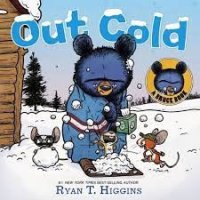"How will I know if he really loves me I say a prayer with every heartbeat" -- Whitney Houston
"'Sonnets from the Portugese?' Nate asked. It sounded as if he wasn't sure they were talking about the same book. "She wanted to change the subject, but if she dropped it now, she might offend him more. 'She only pretended she was translating poems from another language,' Verity explained, 'because they were her love poems to Robert Browning and highly personal. I thought you knew.' "Nate's blue eyes seemed a bit hunted now; he looked everywhere except at her face. 'No, I don't read poetry. I asked my sisters to pick out gifts you might like.'
"Verity caught her breath at the word gifts. Not just the one but all of them. "He hadn't known he was sending her love poems. He'd let his sisters pick out the book -- and the gloves, and even the hair ribbons. Her temper flared. 'Did your sisters write your letters as well as choose your gifts?' "They were now walking five or six feet apart, separated only by the breadth of the road, but it might as well have been a canyon. Nate's silence for the span of several paces was enough. Then he said: 'No, I wrote my own letters. That is, they gave me advice about what I should say...' "Verity could picture it in her mind now: this awkward young farmer bent over a desk, writing under his sisters' instruction, while they composed the words that would win her heart. No doubt they'd stuffed him into formal clothes and combed down his hair for the photograph, too.
"She was walking -- no, running! -- down this horribly steep lane with a complete stranger. And here, to make matters worse, was the church in which she was expected to marry him! Mount Zion Methodist Church was nothing more than a plain log building on a country road. Verity had left a home with a beloved family in worldly Worcester to live in a backwards mountain town with a father she didn't know and to marry a man who'd let his sisters court her."
Verity Boone, now seventeen, was actually born in this town -- Catawissa, Pensylvania -- back in the early 1850s. She was sent to live in Worcester, Massachusetts with relatives of her father at the age of two after the death of her mother. She has literally just met Nate, the young man for whom -- in the wake of extended correspondence -- she has moved back to Catawissa, and this doozie of a first encounter continues on its rapid downward trajectory as they stumble past the church and come upon the adjoining graveyard.
For, in approaching the graveyard, Verity is provided her first-ever sight of her late mother's resting place which, along with the grave of an aunt she didn't know of (and who died the very same day as her mother), is situated outside of the graveyard's stone wall. Furthermore, both her mother's and her aunt's burial plots are enveloped in sturdy cages. *What happened that day to Verity's mother and aunt? Why were they buried outside of the graveyard's consecrated grounds in those cages? And how does any of this relate to the opening chapter of THE CAGED GRAVES, set ninety years earlier, during the American Revolution, when an American private waist-deep in the swamp knifes his own Sergeant, and disappears with a heavy leather satchel the Sergeant had been entrusted with?
Given its cover, and being a guy, I might have passed right by this one. But, instead, that deadly first chapter sucked me right in. There is plenty of love story going on here, but this is first and foremost a well-crafted mystery. Set just after the end of the Civil War, it is a story that is built upon a wealth of interesting history, such as the common practice during the war of a financially-abled conscripted man hiring someone to serve in his place. There is a visible caste system in post-War Catawissa, and there are lots of men in this town -- of various means -- who are missing pieces, both literally and figuratively.
In returning to this town of her birth and the father she doesn't know, Verity stumbles into a thicket of loose ends, legend, superstition, duplicity, and greed. The manner in which she begins to make sense of it all is through reading the journals, written by her late mother, that she discovers in the attic of her father's house. Beyond that, it is so hard for her to know in whom to trust or confide. Particularly when there seems to be an abundance of now-bitter women who were hoping to marry their own daughters into the McClure fortune represented by Verity's intended husband and his productive lands. "Verity set down the embroidered pillows and walked away before her tongue got the better of her. Arguing with those who'd renounced the use of reason, according to Thomas Paine, was like administering medicine to the dead."
Recommended by: Richie Partington, MLIS, Librarian, California USA
See more of his recommendations: Richie's Picks _https://richiespicks.com






